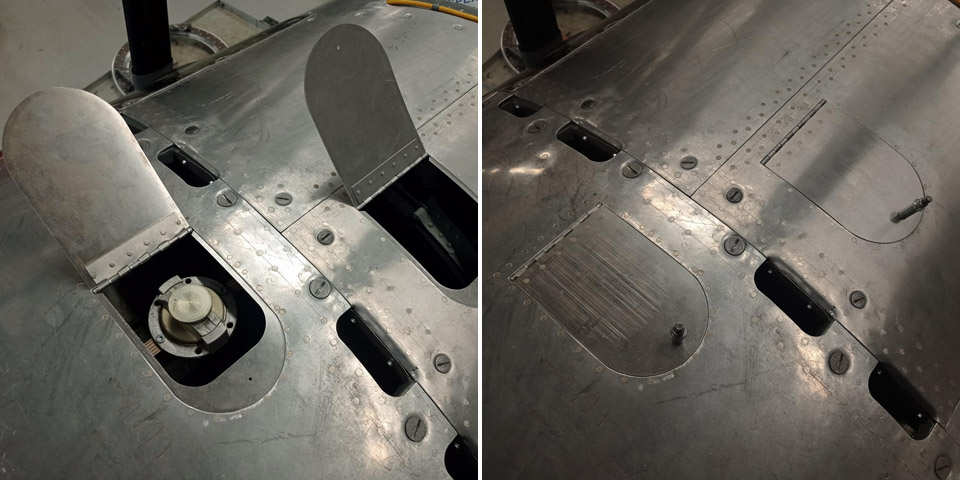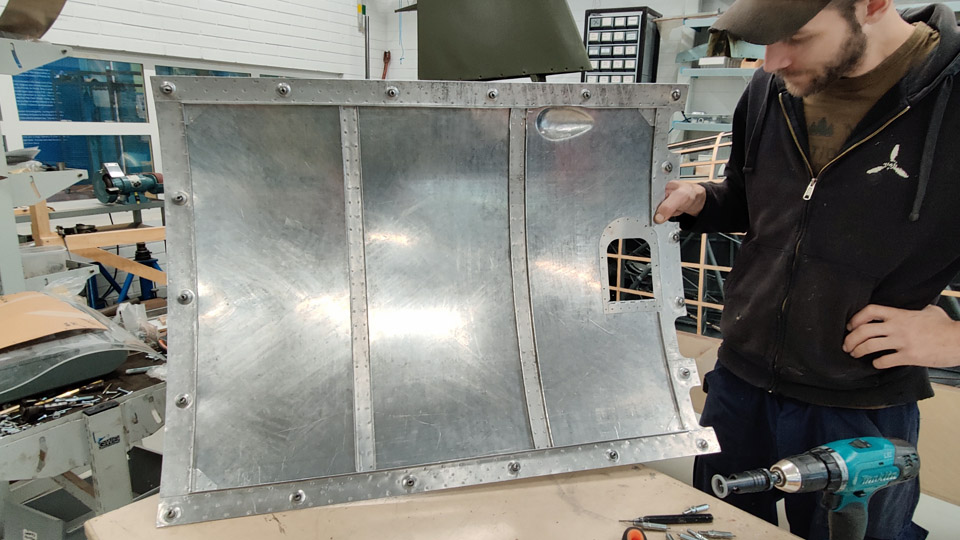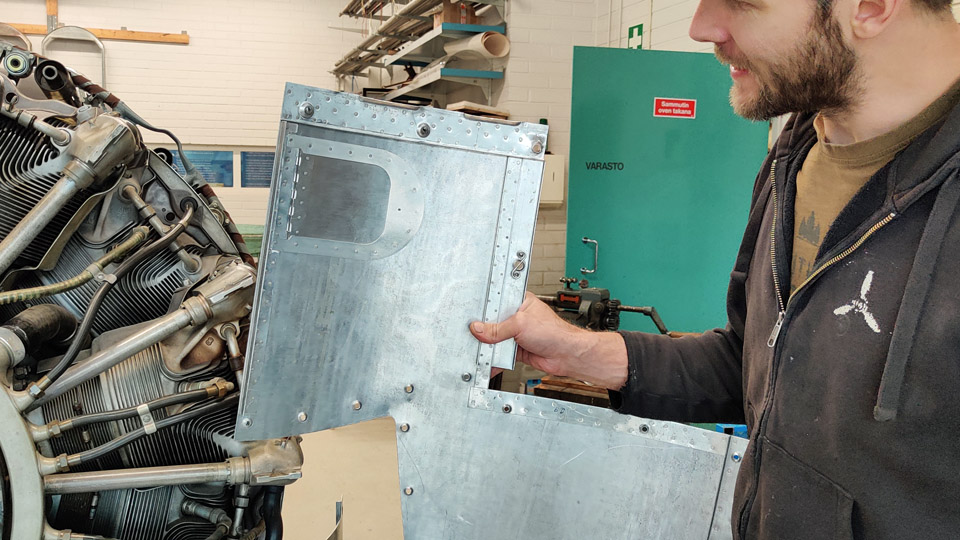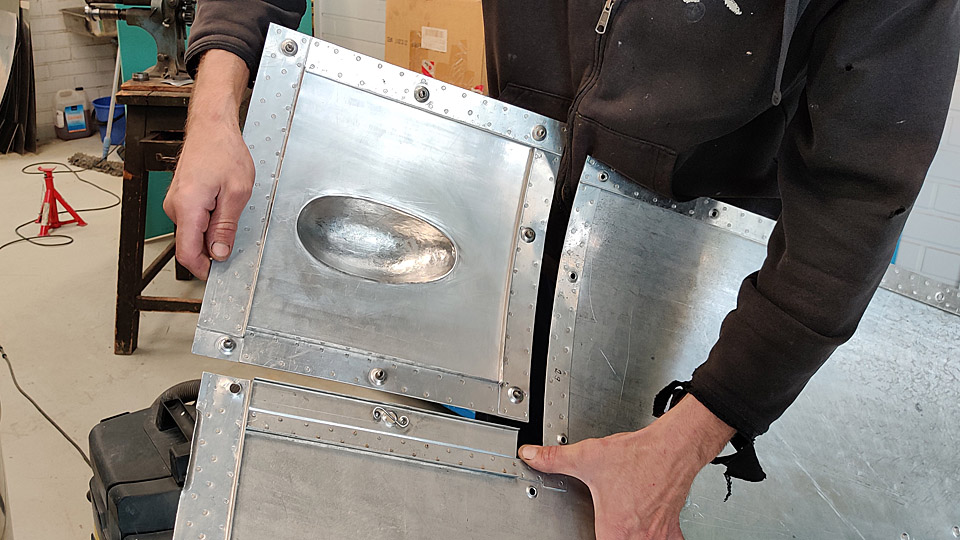A glance under the cowling at TikkakoskiLauantai 10.9.2022 - Reino Myllymäki The undersigned had a chance – and need, too – to visit Tikkakoski to see how the restoration of MY-14 proceeded there. The work on the aluminium sheets forming the front part of the fuselage of MY-14 to make the opening hatches was nearly finished. Of the original sheets of aluminium there remained only a small piece around the root of the antenna mast. It had been part of MY-5 at its time. MY-5 and MY-6 have proved to differ from the other aircraft of the main production batch, even though they belonged to it.
Photos: Finnish Air Force Museum. On the front fuselage sheets there are hatches for entry to the filler caps of the oil-and fuel tanks. There are similar hatches elsewhere, too, but for some reason the width of the hatch for the fuel tank is 10 cm, whereas the width of all other hatches is 11 cm. Because of the 1 cm difference, the parts of the hatch differ from all other hatches. The reason isn’t known, one only wonders….
By turning the sheets, more peculiarities appear. The hatches have “happened to be” in a strange position, so that the sheet stiffeners had to be modified so that the side reinforcements, that form the lips of the hatches, could be fitted.
The jigsaw puzzle consisting of pieces of sheet metal is impressive, and the sheets could not have been cut according to plans, but the cutting lines had to be improvised. Such is the situation in restoration, but the state of the affairs has probably been the same when the aircraft were constructed at their time. Some of the braces attach straight to a counter piece in the fuselage, which means that a piece has been cut off from the sheet below. In another place the brace is attached straight to the sheet of aluminium beneath. After a couple of hour’s wondering, the MY-14 stabilizers were packed in my car, where their journey continued to Vantaa. Photos by Reino Myllymäki, unless otherwise indicated. Translation by Matti Liuskallio. |
|
Avainsanat: aviation history, restoration, MY-14, VL Myrsky |





